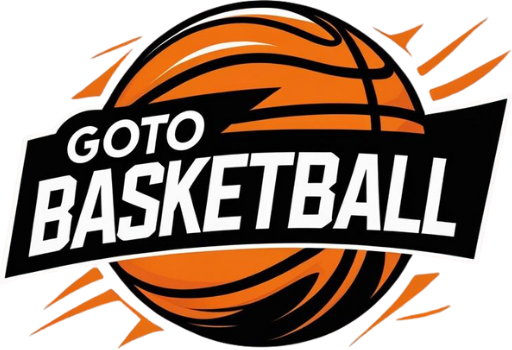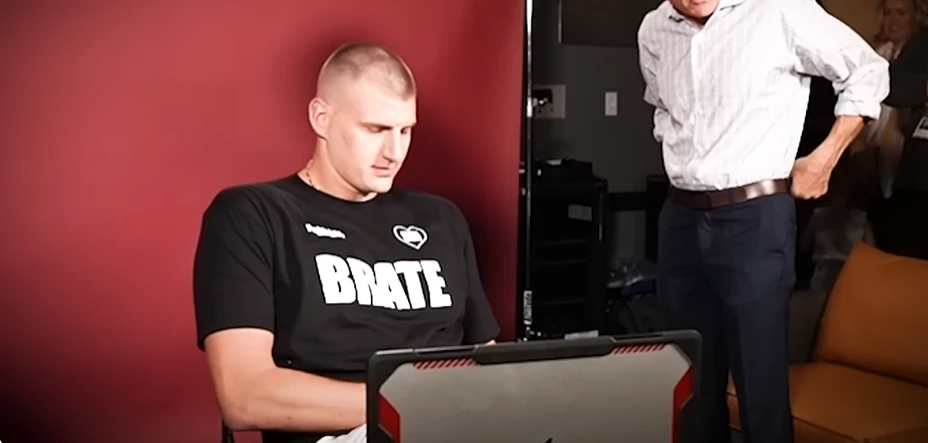The hardwood courts of Europe are currently the stage for a basketball symphony of unparalleled depth, drama, and sheer talent. EuroBasket 2025 is underway, and it’s more than just a continental championship; it’s a brutal qualifying gauntlet for the 2025 FIBA World Cup, a showcase of NBA superstars representing their nations, and a testament to the beautiful, team-oriented style of basketball born on this side of the Atlantic. In the early group stage acts, two narratives have emerged with compelling force: the effortless dominance of Nikola Jokic for a formidable Serbian squad, and the redemptive, heroic push of Nikola Vucevic to lift Montenegro to its crucial first victory of the tournament [1].
This isn’t just about wins and losses; it’s about national pride, the clash of basketball philosophies, and superstars like Jokic swapping NBA championship aspirations for the singular honor of adorning their country’s crest. The early days of this tournament have provided a masterclass in what makes international basketball so captivating.
The Maestro at Work: Jokic’s Serbia is a Well-Oiled Machine
When the best basketball player on the planet decides to suit up for his national team, expectations understandably skyrocket. Nikola Jokic, fresh off another MVP-caliber season with the Denver Nuggets, has not just met those expectations for Serbia; he has effortlessly exceeded them, orchestrating the game with a preternatural calm that borders on boredom, a sure sign of his total control.
Serbia’s opening games have been a demonstration of basketball IQ and unselfish play, all filtered through the mind of Jokic. His stats, while impressive, are almost a footnote to his impact. He is averaging a near triple-double, controlling the tempo without forcing a single action [1]. He scores not because he needs to, but because the defense’s attempt to stop his passing lanes opens up easy looks. He rebounds and outlets the ball with a quarterback’s precision, turning defensive stops into instant offense.
But what makes this Serbian team truly terrifying for opponents is that it is far from a one-man show. Jokic is the sun, but a constellation of talented European professionals orbits around him. Players like Vanja Marinkovic and Ognjen Dobric provide lethal outside shooting, stretching defenses to their breaking point and punishing them when they inevitably collapse on Jokic in the post [2]. This is the essence of “Jokic-ball” on an international scale: a selfless, read-and-react system that produces the highest-percentage shot on almost every possession. Their early dominance isn’t just about scoring more points; it’s about demoralizing opponents with a style of play that feels both inevitable and impossible to stop. https://sports.yahoo.com/nba/breaking-news/article/eurobasket-2025-schedule-scores-standings-nikola-jokic-leads-serbia-nikola-vucevic-lifts-montenegro-to-1st-win-173958881.html
A Balkan Battle: Vucevic Carries Montenegro on His Back
A few hundred miles distant, another star center in the NBA is writing another, and just as interesting, story. In the case of Nikola Vucevic of the Chicago Bulls, the pressure was mounted on him by Montenegro right at the very start. In comparison to Serbia, the future of basketball in Montenegro is quite uncertain; all the matches recorded in the group stage are a dogfight, and a 0-2 result in the first two games in the tournament would have been a fatal blow to their chances of qualifying for the World Cup.
Montenegro had to win it after an embarrassing first game. Enter Vucevic. The two-time NBA All-Star had become not his sometimes-complementary player in Chicago, but the undisputed alpha of his national team. During their first win, Vucevic was more of a monster, recording a stat line that demonstrates his sheer will to win: a box-shattering double-double with a game-high in points and rebounds and anchoring the defense, and a go-to option in the clutch [1].
It is a microcosm of the special pressure of international basketball. To players like Vucevic, who might not be the first choice on their NBA teams, the national team call-up is a reversion to being the guy. They are often the conduit through which the whole offensive machinery passes, and their shoulders bear the hopes of a nation. What makes heroes in their native lands is the answering of such pressure with a mighty, refined, and willful performance–such an answering as Vucevic gave. It was a victory that rescued the campaign of Montenegro and demonstrated how a leader might motivate a team to do better than it was expected to do on the world stage.
The Historical Weight of EuroBasket
EuroBasket may look like a quaint summer tournament to the average American fan. It is actually among the most brutally competitive and traditionally deepest basketball events in the world, and is sometimes ranked second only to the Olympics in prestige and challenge.
It was first played in 1935, and its history is a web of geopolitical conflicts, dynasties, and the stories of how basketball icons came of age. Both Serbia and Montenegro were part of the former Yugoslavia, which was a powerhouse in the field, having won the tournament five times in the period between 1973 and 1995 [3]. The break-up of Yugoslavia in the 1990s divided that hoops giant into a variety of independent countries, each now with its own proud hoops heritage as well as a strong and frequently vehement rivalry against the others.
Such a historical background turns each encounter between these Balkan states into something bigger than a game; it is a question of national identity, national pride. As Serbia has maintained a steady stream of Yugoslavian basketball success, such as a silver medal at the 2016 Olympics, other countries have had to struggle to earn the slightest recognition [4]. This is the reason why a victory of Montenegro with their NBA star is so far-reaching. It is an assertion that they are on the same field as the continental giants.
The Road to the 2025 FIBA World Cup
The EuroBasket 2025 stakes are very high. The tournament is the main qualifier for the 2025 FIFA World Cup to be hosted by Qatar. Everything here is performance. The best teams of the group stage and knockout matches will get their dream tickets to the World Cup, and others will watch their dreams disappear [5].
Instead of having a simple Olympic trials, this qualification system puts pressure on each and every game. A defeat at the group stage can have disastrous knock-on effects, putting a team into a tougher knockout bracket or causing their hopes to die altogether. This is the pressure that Serbia would wish to escape with its dominating opening, and the pressure Montenegro was feeling to win its opening game. Anything that is possessed is multiplied; any defensive stop is treated like a game-winner. It is what makes international basketball such a contrast to the long slog of an NBA season; there is no tomorrow until you win today. https://www.fiba.basketball/eurobasket/2025/team/Serbia
A Clash of Styles and Systems
Watching EuroBasket also provides a fascinating study in contrasting basketball philosophies. The European game is often celebrated for its emphasis on fundamentals, team defense, motion offense, and high-IQ play. It’s less about isolation heroics and more about intricate off-ball screens, sharp cuts, and quick ball movement.
An NBA superstar like Jokic is the perfect fusion of these worlds. His game, though uniquely his own, is built on a foundation of European fundamentals: passing, positioning, and skill amplified by his otherworldly talent. Seeing him operate within the Serbian system, which already emphasizes these traits, is a basketball purist’s dream.
Meanwhile, teams without a singular megastar, like many of the other contenders, must rely even more heavily on cohesive team systems, disciplined execution, and tactical coaching. It’s a chess match played at a sprinter’s pace, where a single defensive adjustment or a cleverly drawn-up out-of-bounds play can be the difference between victory and defeat.
The Verdict So Far: A Tournament of Promise
The early stages of EuroBasket 2025 have delivered everything fans could hope for: superstar performances, emotional underdog stories, and the high-stakes drama that only international competition can provide. Nikola Jokic has confirmed his status as the global king of the court, making Serbia the team to beat and a terrifying prospect for any opponent. Simultaneously, Nikola Vucevic has embodied the heart and soul of international play, lifting his nation on his shoulders when they needed him most.
As the tournament progresses into the knockout rounds, the intensity will only magnify. The battles will not just be between players, but between styles, histories, and the burning desire to represent one’s country on the world’s biggest stage. One thing is certain: the road to the 2025 FIBA World Cup is being paved with incredible basketball, and the world is watching.





